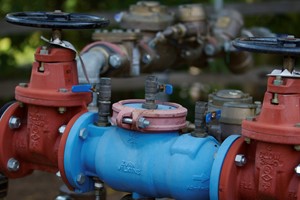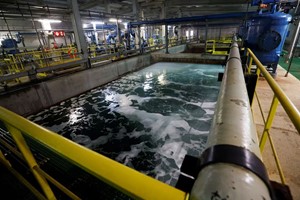In response to a persistent drought impacting the Catalonia region, authorities announced plans to install a temporary floating desalination plant within Barcelona's port. This initiative aims to bolster the city's drinking water supply and mitigate the effects of historically low reservoir levels.
The announcement comes after three consecutive years of below-average rainfall, coupled with the intensifying influence of climate change, have severely strained water resources in Catalonia. To address these challenges, the regional government declared a drought emergency in February, prompting the exploration of various solutions.
Authorities determined that a floating desalination plant offered a superior alternative to transporting water by ship. David Mascort, head of the regional environmental authority, emphasized the economic and environmental benefits of this approach during a press conference. He characterized the desalination plant as a "more economical and environmentally sustainable solution" that would enhance Barcelona's water security. Mascort elaborated that the plant's production capacity would significantly surpass that achievable through water shipments, while also incurring lower costs.
While traditional cargo ships could deliver an average of 25,000 cubic meters of water daily, the floating desalination plant is projected to produce 40,000 cubic meters. This output represents approximately 6% of Barcelona's total water consumption. Notably, Barcelona already relies on a permanent, land-based desalination plant, which currently fulfills nearly a quarter of the city's water needs.
Despite recent spring rains offering some temporary relief, Catalonia continues to enforce water use restrictions implemented during the February emergency declaration. These limitations encompass a daily allotment of 200 liters per person for domestic purposes, alongside significant reductions in water usage for agriculture, livestock, and industry.
The anticipated influx of drinking water from the floating desalination plant is expected to alleviate the need for stricter water restrictions in the coming fall months, potentially even eliminating such a requirement entirely.














